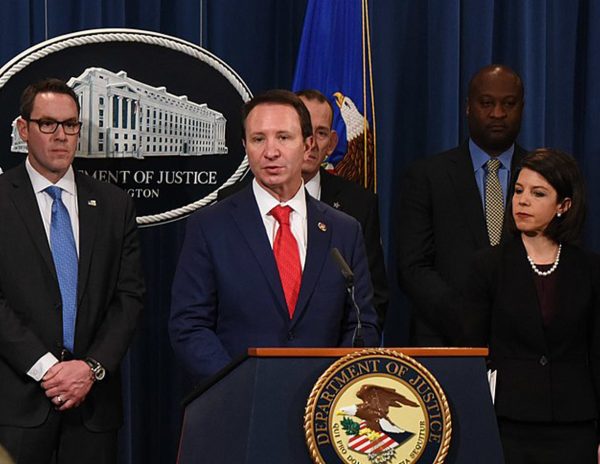
As Louisiana is staring down the barrel of a potential $500 million budget deficit, Gov. Jeff Landry and Revenue Secretary Richard Nelson are proposing a comprehensive tax overhaul plan that would see changes to income, sales and corporate taxes.
The governor’s ambitious plan would likely take some time to go into effect. Landry hopes to hold a special session after Election Day but before Thanksgiving, when he can pass a series of bills that would implement a flat income tax rate, expand the breadth of services having a sales tax and restructure corporate taxes — notably by lowering the corporate income tax rate and eliminating the franchise tax.
After briefly considering expanding the state sales tax to things like prescription medicine and residential utilities — actions that would require reworking the state constitution — the revenue office had a stark turnaround; now, the office is looking to eliminate the ability of parishes and local governments to tax these types of resources. Doing so would still require constitutional changes and cannot be accomplished within the special session.
Steven Sheffrin, a professor of economics and law, said Louisiana hopes to address the state’s corporate competitiveness in the special session: “They also realize that the corporate tax rate in Louisiana is actually pretty high. It’s 7.5%, and that’s on the high side by national standards.”
According to Sheffrin, Landry hopes to lower the corporate tax rate to a flat 3.5%, while also eliminating the franchise tax — a tax on the capital of a corporation, not their profits. Landry wants to recuperate these lost costs by eliminating existing corporate tax exemptions.
Zachary Lawson, a 20-year-old diesel mechanic from Westwego, Louisiana, is employed by a family-owned business and is the child of a small business owner.
“[My mom’s] taxes, she does herself, and we’ve seen it, and it’s pretty hefty on small businesses. So, I do think that a corporate cut would be nice, especially for someone that is a single person running a side business, I think that is a very good thing,” Lawson said.
Regarding the personal income tax, Landry is hoping to change the state’s current tax bracket system, which ranges from 1.85% to 4.25%, to a new consolidated flat rate of 3%. This means higher-income households pay less in income taxes, while lower-income households pay more. These increased rates for lower-income households are planned to be offset by raising standard deductions, that is, decreasing the amount of money these households can be taxed in the first place.
Louisianians are used to paying a sales tax on goods and services that are not always taxed in other parts of the country. Under the proposed changes, some new resources would receive a sales tax, largely targeted at the type of things medium and higher-income households spend their money on. Notable among them are certain digital services, including streaming services like Netflix or Disney+. It would also affect the use of certain databases and digital services more prevalently used among corporations.
The proposals still have a ways to go and will undoubtedly be tweaked before the proposed special session next month.



Leave a Comment